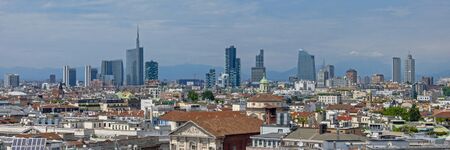Milan Italy
- Members
Milan is a city located in northern Italy. It is the capital of the Lombardy region and the second-most populous city in Italy after Rome. Milan is known as a global fashion and design capital, as well as a major financial and commercial hub. The city has a rich history that dates back to ancient times when it was founded by the Celts. Throughout its history, Milan has been under the influence of various civilizations, including the Romans, Byzantines, and Visigoths. The city is renowned for its stunning architecture, with landmarks such as the Milan Cathedral (Duomo di Milano), the Galleria Vittorio Emanuele II, and the Sforza Castle. Milan is also home to world-famous artworks, including Leonardo da Vinci's "The Last Supper." With a population of approximately 1,408,873, Milan is a bustling metropolis that offers a blend of historical charm and modern innovation. The city hosts international events, such as Milan Fashion Week and the Milan Furniture Fair, attracting visitors from around the globe.
Activities

|
Open platform for scalable and multi-domain IoT applications for smart cities | |
Objectives
| ||

|
Smart City innovation Hubs | |
| Creating Smart City Innovation Hubs that support cities in their digital transformation by mobilizing whole local innovation ecosystems (PA, R&D, industry, Academia, Citizens, etc.). Starting from an alignment between all interested actors and promoting the use of digital technologies as a resource to be applied to many potential urban challenges. | ||

